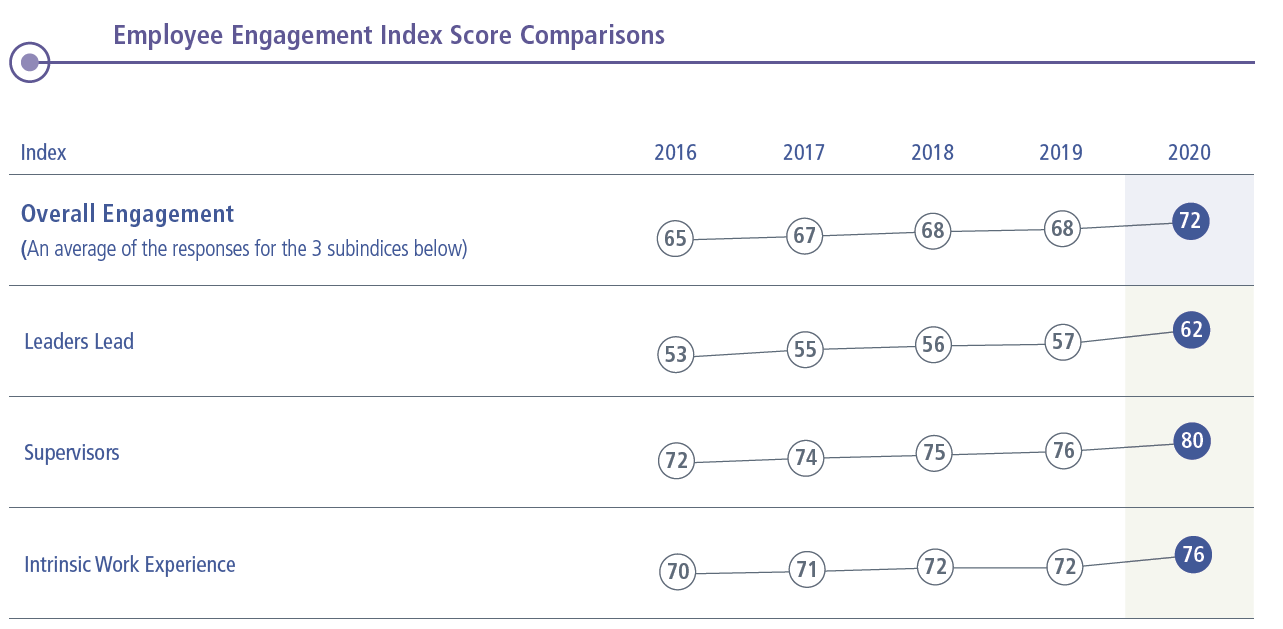Definition Of Employee Engagement By Different Authors And Involvement
Employees that are engaged care about both their work and the. When we are emotionally invested and interested, it indicates that we will exert more effort.
We demonstrate that the term is employed to refer to psychological states, features, and behaviors, as well as their antecedents and results, at various points in time.
Definition of employee engagement by different authors.

Motivating Today S Workforce Infographic How To Motivate Employees Employee Engagement Leadership Management Working Environment Questionnaire Work Google Scholar
Using a variety of pertinent literatures, we. Defining employee engagement Employee engagement is the degree to which employees are mentally and emotionally committed to the work they accomplish on behalf of their teams and organizations. Employee engagement is the harnessing of an organization’s members’ selves to their job roles, according to Kahn 1990694. It should be distinguished from employee behavior or managerial decisions that are related to job quality.
The emotional commitment a worker has to the organization and its objectives is known as employee engagement. How to Define Employee Engagement Due to facts and research showing that an engaged workforce performs better and hence builds a strong employer brand, the concept of employee engagement is expanding throughout the corporate world. 2009, Leigh and Roper Employee engagement can be defined as our emotional dedication to our company and its objectives.
Both academic scholars and practitioners who use the term in talks with customers disagree on what employee engagement actually means. Maximum contribution to the company and maximum employee pleasure meet at the point of intersection known as employee engagement. The cognitive component of employee engagement relates to the employees’ perceptions of the company.
Employee engagement levels Measures of employee engagement. An employee who is fully immersed in and enthusiastic about their work acts favorably to advance the reputation and interests of the organization. According to Harter Schmidt and Hayes in 2002, employee engagement is
As a result, we give all of ourselves—our hearts, spirits, minds, and hands—to the work we accomplish. It is a sustained level of high performance that is advantageous to the employer and the worker. Employee engagement is characterized by Sanchez (2007) as a result of how people view their work, the leadership of their companies, the recognition and awards they receive, and the communication culture of the company.
Employee engagement is described by DecisionWise as an emotional state in which we feel enthusiastic, committed, and passionate about our work. Some definitions, meanwhile, are more in line with job satisfaction. Employee Engagement: Changing the Culture People Results Ltd.’s managing director, Melanie Allen, is the author.
Unlike potential language, which is constantly evolving, employee engagement is a principle that will never go out of style. Employee engagement was defined as a good attitude held by the employee toward the organization and its ideals by Robinson Perryman Hayday in 2004. A characteristic of the connection between a company and its employees is employee engagement.
This mental dedication entails. During role plays, participants in engagement use and express their physical, cognitive, and emotional identities. Although it seems like a straightforward idea, it has a significant impact on how well your company performs; we’ll talk more about that in a moment.
It’s two sentences, I guess. Employee emotional commitment to the organization and its objectives is known as employee engagement. According to author Kevin Kruse, employee engagement is defined as a sense of commitment, enthusiasm, and energy that converts into a lot of persistence in completing even the most challenging jobs above and beyond what is required of them. In the endeavour to comprehend and express both qualitatively and quantitatively the nature of the interaction between a business and its employees, employee engagement is a vital notion. An employee who is fully immersed in and excited about their work and who acts favorably to advance the reputation and interests of the company is said to be engaged.
Employee commitment has been described as an intellectual and emotional commitment to the company. There are a variety of factors that affect employee engagement levels, and these factors vary by geography and firm. The study discovered that numerous authors had written about employee engagement throughout the years and the various elements that influence employee engagement in organizations.
Employee involvement measures how invested and motivated individuals are in their work. Employee involvement is defined. The idea that employee engagement is considered as a psychological condition experienced by employees is one thing that is evident in scholarly research.
Employee engagement is a term used in human resources management to express how enthusiastic and committed an employee is to their work.

The Holy Grail Of Engagement Starts With Your Employees Employee Ideas New

Understanding The 17 Drivers Of Employee Engagement Emplify Initiatives Company Vision And Mission How To Keep Employees Motivated Engaged Improve Team
Originally posted 2022-05-22 14:17:10.

